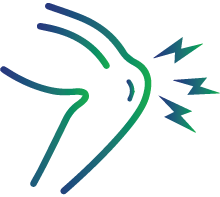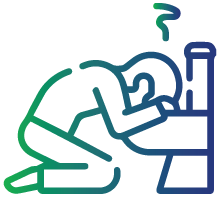
Dengue Antibody IgG, ELISA Test
Dengue Antibody IgG, ELISA
Mosquitoes that live in tropical and subtropical climates commonly transmit dengue fever to humans. Blood tests like Dengue Antibody IgG, ELISA test can find antibodies made in response to a dengue infection or the dengue virus itself.
Enzyme-linked immunosorbent assay or ELISA is an immunoassay method for qualitative detection of antibodies to dengue in human. The dengue antibody IgG, ELISA test serves as a screening tool and yields an early assessment of any previous or ongoing dengue virus infection. It identifies secondary dengue infections and looks for specific IgG antibodies in the patient’s serum. The antibody levels rise for about 7 days, reaching their peak in the second week. It lasts 90 days in the blood. However, in some individuals, these antibodies may remain in them for the rest of their lives.
Thus, getting the dengue IgG, ELISA test done is recommended for early detection of any secondary dengue infection and for preventing fatal conditions like dengue hemorrhagic fever, dengue shock syndrome, reduced blood cell counts, etc.
Dengue Antibody IgG, ELISA test is also known as Dengue Fever Antibodies, Dengue Fever Virus
Symptoms of Dengue

High fever

Headache

Joint and muscle pain

Nausea and vomiting

Skin rash
What is Dengue Test used for?
Dengue test is recommended in the following cases:

Showing symptoms of dengue disease

Recent travel to a tropical or sub-tropical country
Preparation for test
No special preparation is required for a dengue fever test
Interpretation of results
The results obtained for antibody IgG in case of dengue fever are interpreted as:
|
Value of IgG antibody |
Interpretation |
Remarks |
|
<1.8 |
Negative |
No IgG antibody detected |
|
1.8-2.2 |
Equivocal |
Retesting advised |
|
>2.2 |
Positive |
IgG antibody detected |
|
Stage of Dengue Infection |
Incubation period for IgG detection |
|
Primary |
14th day & persists for life |
|
Secondary |
1st - 2nd day |
Deviation from normal levels indicates the following:
· A Positive test result for dengue IgG antibodies but not IgM antibodies is usually caused due to an infection in the past.
· A recent infection is most likely the case if the dengue IgG antibody test titre increases by fourfold or more between the initial sample and one taken two to four weeks later.
· IgG and IgM antibody positive tests indicate current dengue virus infection.
A Negative IgG test result indicates no dengue infection
FAQs
How is the sample collected for a Dengue Antibody IgG, ELISA test?
A blood sample is taken from a vein in the arm using a fine needle. This procedure typically takes no longer than five minutes
What are the risks involved in a Dengue Antibody IgG, ELISA test?
This test involves negligible risk. There might be slight pain or tenderness around the site where the needle went in. Rarely, the site can become infected.
What is the turnaround time (TAT) for the result of a Dengue Antibody IgG, ELISA test?
Dengue Antibody IgG, ELISA test result is usually available within the same day the test was taken, although it could take longer at times
What are the limitations of a Dengue Antibody IgG, ELISA test?
False-positive results are possible in people who have other flavivirus infections, such as West Nile virus, St. Louis encephalitis virus, and Zika virus. To identify the infecting virus, additional laboratory testing and obtaining a detailed exposure history is necessary. Also, for people who have received blood transfusions or other blood products within the last several months, positive test results might not be reliable
Can dengue fever be transmitted from person to person?
Person-to-person contact or exposure to respiratory secretions does not spread the virus.
The virus spreads when a mosquito bites an infected person and then bites a healthy person. Rarely, it may be passed from mother to fetus, through organ donation, or through blood transfusions.

